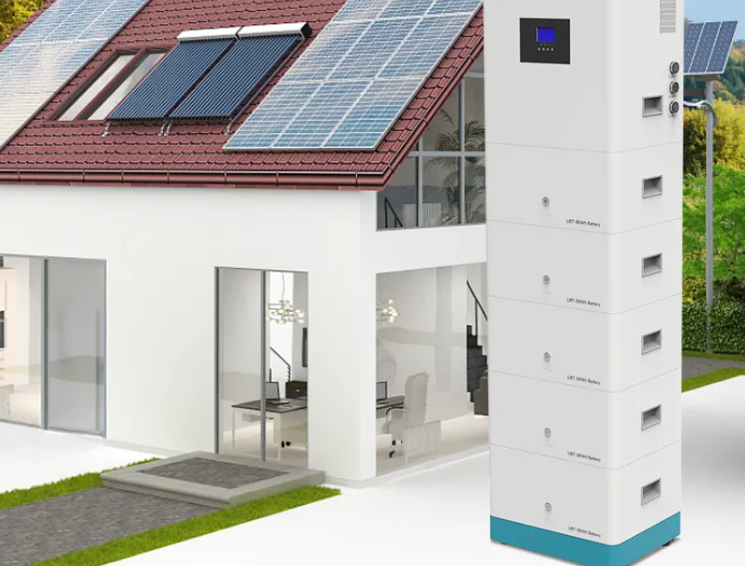Views: 231 Author: Ubest Publish Time: 2023-10-20 Origin: Site









Home energy storage, often known as household energy storage, refers to appliances that locally store electricity for later consumption. The main purpose of a home energy storage system is to save any extra electricity produced by solar panels and store it in a battery bank for quick access to the home at any time.
The solar photovoltaic module produces more energy when the sun is shining normally, and the battery can store it to ensure power at night or on days when it is cloudy or wet. Additionally, the battery enables the efficient running of the entire home-based pure system by optimizing the usage of electricity. At the same time, if your home has an energy storage system, it can be used in this situation to maintain continuity and the response time is very quick. For instance, desktop computer drawings that you forgot to save in time, fresh food in the refrigerator that melted and might be spoiled, etc.
1. PV (lightweight flexible solar panel or folded unibody panel)
2. Inverter or multi-function inverter (you can choose according to your needs)
3. WIFI module or 4G module (domestic and foreign countries will be slightly different)
4. Battery storage battery (divided into wall-mounted, floor-standing roller type, battery combination of removable type, according to the power consumption of their choice, according to the power consumption, the main house in Europe, may take into account the weight of the wall-mounted).
Advantages of home-based energy storage systems include (1) reducing emissions, reducing pollution and demand on a grid that relies on coal and natural gas; (2) blackout safety, providing backup power in the event of a blackout or emergency; (3) reducing costs, saving money by using less energy from the grid; (4) becoming energy independent, storing excess solar energy to reduce grid use; (5) reducing peak demand, during peak hours support the grid and provide grid stabilization services.
The disadvantages of home energy storage systems are higher upfront costs; adding more to the total system cost. Home energy storage systems improve the dependability of solar power generation by removing the drawback of not being able to produce electricity for use on cloudy and rainy days. Affected by the global energy crisis, these systems are becoming more and more popular, accepted, and loved by all. They preserve the environment while saving energy for sustainable power generation.
A Home Energy Storage System (HES) is a system of equipment used for home energy management, designed to store and manage electricity to meet the daily electricity needs of a household. It usually consists of a photovoltaic (PV) power generation system, a battery storage device, an inverter, and an energy management system.
The main functions and roles of home energy storage systems are as follows:
The home energy storage system utilizes the power generated by the PV power generation system or other renewable energy devices to store the excess power in batteries for emergency use and to avoid energy waste. This allows the home to still use the stored power when it is not able to generate enough electricity, such as at night or on cloudy or rainy days.
In the event of a power interruption or blackout, the home energy storage system can provide backup power to ensure the normal operation of critical equipment (e.g. lighting, communication equipment, medical equipment, etc.). This helps to increase the safety and convenience of the home.
Home energy storage systems also include an energy management system that monitors and controls home energy use, intelligently managing and optimizing power supply based on electricity demand and tariffs. This helps to reduce energy costs, improve energy efficiency, and maximize the use of renewable energy.
Overall, home energy storage systems provide homes with reliable backup power and energy management capabilities by converting solar and other renewable energy sources into electricity and storing it in batteries. This not only improves a household's energy self-sufficiency but also reduces dependence on the conventional grid and promotes the use of sustainable energy sources.
A home energy storage system is a device that can convert renewable energy sources such as solar and wind into electricity for storage. Its primary role is to increase a household's self-sufficiency, reduce energy costs, and promote the use of renewable energy sources.
The characteristics of home energy storage systems include:
1. high reliability: home energy storage systems use high-quality battery components, with high safety and reliability.
2. Flexibility: Home energy storage systems can be expanded or upgraded according to actual needs to adapt to changes in household electricity demand.
3. Simple operation: the home energy storage system has a friendly human-machine interface and intelligent control functions, easy to use.
4. Energy saving and environmental protection: Home energy storage systems can reduce the family's dependence on traditional energy sources, reduce energy consumption, and reduce carbon dioxide emissions, thus playing a role in energy saving and environmental protection.
Advantages: 1) Improve family self-sufficiency and reduce the cost of energy consumption. 2) Promotes the utilization of renewable energy and improves environmental quality. 3) Can be used as an emergency backup power source to provide the necessary power support in unexpected situations.
Disadvantages: 1) Higher installation costs, requiring some investment. 2) The current home energy storage system has a relatively limited storage capacity and service life and requires the replacement of battery components and other parts.
At present, home energy storage systems are mainly used in the following areas:
1. photovoltaic (PV) power generation system: to store the electricity obtained from PV power generation and use it at night or on dark days.
2. wind power generation system: to store the electric energy obtained through wind turbine generation for home use.
3. Emergency Backup Power: To serve as an emergency backup power source for the home, providing electrical support in case of power outages or other emergencies.
content is empty!